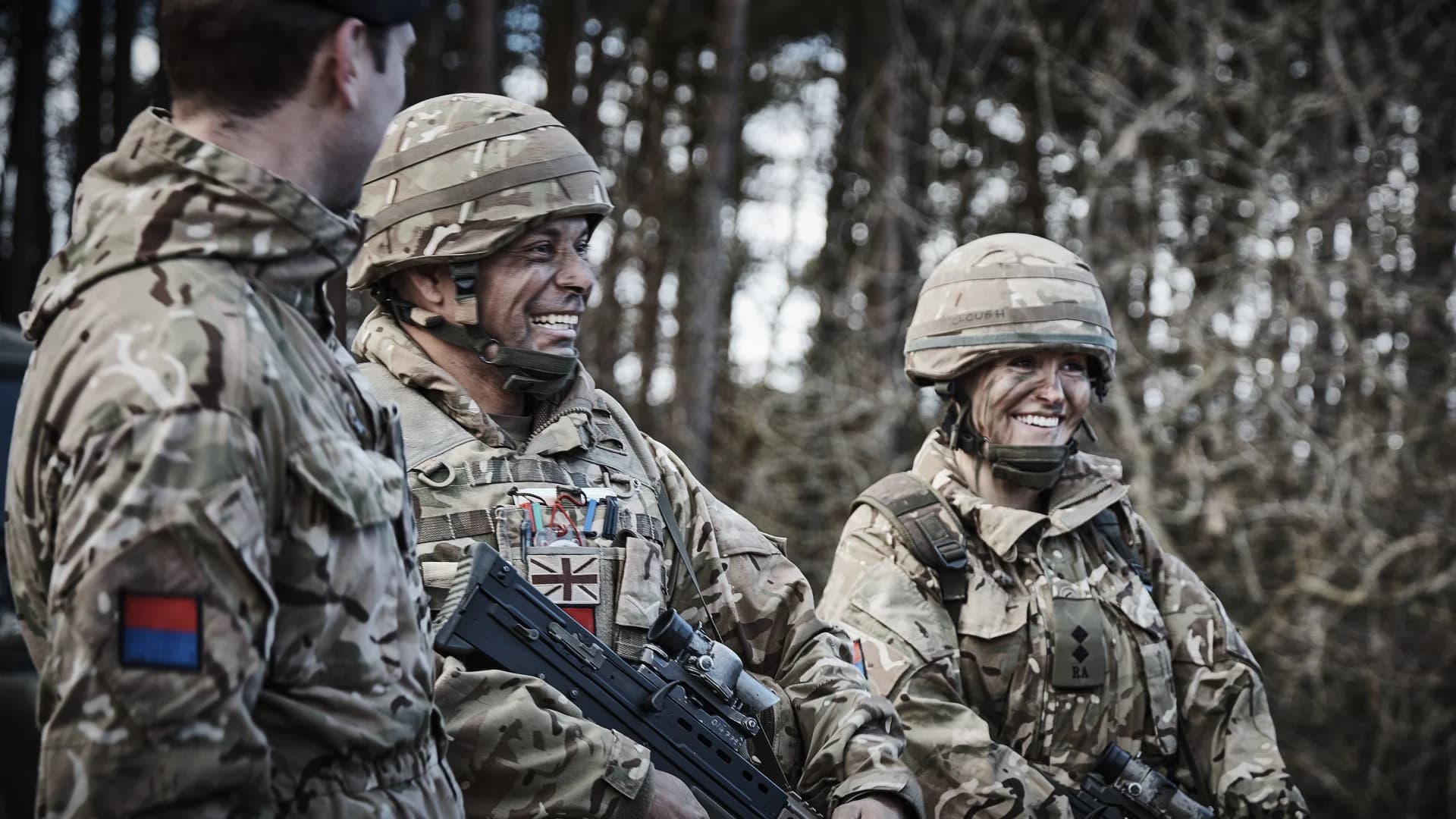
Foundation years and year out

Additional information
Hi! I'd just like to ask a little more about a few things. I'm a medical student right now. Firstly, is foundation year in the army very similar to the NHS in that you work in one of the MOD-affiliated hospitals? Is it a fixed salary and fixed hours or are you like NHS doctors where you may work overtime etc. Also in foundation years would you have any exposure to army life or does that only start afterwards when the 3 years begin? Second, once you complete GDMO would the army support you taking a year out to do locum work in the NHS (similar to a FY3) before going onto specialty training back with the army? This might be useful if you didn't get the specialty you wanted (I read the army would let you do another year as GDMO but not if you could locum for a year and reapply). Thank you!
Anonymous asked a question to Medical Roles
Category: General
Date asked: Friday, June 26, 2020
Last reviewed: Monday, December 28, 2020

Tori C.
Regimental Medical Officer
Hello,
Yes, we do the same foundation programme as the NHS, but you will have to do certain specialties, I believe these are currently a medical and a surgical specialty in FY1 and both General Practice and A&E in FY2. You may then express a preference for the other specialties you would like to do.
The salary is fixed and you will work the same rota as your NHS colleagues on the same rotation. 'Overtime' isn't really a thing for foundation doctors, but I think you might mean working out of hours (nights, evenings, weekends), in which case, yes you will work out of hours.
You will wear military uniform and will be under the defence deanery and be part of a regiment (usually AMS Sp Unit), but otherwise you won't really have military commitments (you won't have time!). Most foundation trainees also live in military accommodation and will attend military functions (like the Christmas ball). If you have time you could also get involved with military sports.
If you don't get the specialty you want then you won't be able to locum and reapply, but you can do a 4th GDMO year and reapply. During your extra year the Army will support you in building up your application to address any areas you may be able to improve. If this means doing some time in secondary healthcare this is likely to be possible, but most likely a few weeks rather than a whole year. If you are concerned about showing commitment to specialty, there are other ways to show this, and the Army is particularly good for GDMOs who wish to become involved with research/QIP/Audit within their chosen specialty. It is also very good at supporting GDMOs who wish to do courses beneficial to their future careers (predominantly in terms of time to attend courses/conferences, but also occasionally financially).
I hope that helps, let me know if you have any other questions or need to clarify anything.
Sunday, June 28, 2020
Anonymous
Thank you so much for your response!
Could I also ask - if you join the army directly as a bursar from medical school - you will not be allowed to do a FY3 because you are committing to transition straight to GDMO right?
Whereas if you went into the army after FY2 you could apply for GDMO role after doing your FY3?
Friday, July 3, 2020

Tori C.
Regimental Medical Officer
If you join as a bursar you won't be able to do an FY3. You could theoretically apply to join after doing an FY3 year, but this would mean taking 4 years out of training. I believe your foundation competencies are only valid for 3 years, so it would involve a little bit of extra paperwork, but I can't imagine that would cause an issue (given that there are some GDMOs who do 4 years).
What is it that you are hoping to gain from an FY3 year?
Friday, July 3, 2020
Anonymous
I know lots of doctors take a year out after FY2 to consider what they want to do next. I was under impression that the army pathway does the same thing (you apply with rest of cohort for specialty pathway and then do your GDMO) but I was wrong it seems! As you said you apply after your GDMO time which after reading your other posts sounds really interesting and a great new experience.
When you apply for specialty placements after GDMO then, is it competitive? I am interested in anaesthetics or T&O, would that be difficult to do with the army in terms of competitiveness? Do you apply competing with NHS counterparts or is it based on the needs of the army?
Thank you so much :)
Saturday, July 4, 2020

Tori C.
Regimental Medical Officer
How competitive training is can really vary from year to year depending on how many posts in each specialty are available, and what the other doctors in your cohort want to do. In the last couple of years general practice has been more competitive than most of the secondary health care specialties.
You will be given a list of the specialties available, and how many jobs are available in each one. If you choose a specialty that is competitive then the Army will interview applicants prior to the national application round to decide which candidates they will support.
For example, if 5 people wanted to do anaesthetics, and there were 2 training posts, the top 3 or 4 candidates would be allowed to apply for an army training post. Then the 2 who benchmark the highest in the national application would get the jobs. The remaining 3 may repeat a year of GDMO and try again, or they may have had a 2nd choice specialty, or they could leave and train in the NHS.
You don't necessarily compete against your NHS colleagues, but you do have to benchmark, the Army won't offer you a training post if you would have been unable to get one in the NHS.
Sunday, July 5, 2020
Anonymous
Hi ma'am. Thank you for answering the questions. I just made an account today!
To add to this discussion, I wanted to ask if you would be able to do locum work at the NHS during the 3 years of GDMO with the army (or other stuffs like research)? Or do you not normally get that much free time.
I had another quick question if I may, after F2 can you join as a RMO. What is the difference between RMO and GDMO?
Many thanks!
Monday, December 28, 2020

Tori C.
Regimental Medical Officer
Hello,
To do any paid work outside the Army you would need to apply to your commanding officer for permission. Theoretically it could be possible to do locum shifts, but I found life as a GDMO could change at short notice, so I would anticipate committing to shifts would be difficult, and you would be limited to weekend work. The GDMO salary is pretty good, and I don't think the current FY2/SHO locum pay in most hospitals would be enough for me to consider giving up my weekends for, but I know everyone has different thresholds! If you are thinking about locum shifts to get more experience in a specific specialty, then you can usually arrange to do a few shifts (it used to be 10, but this may have changed) in a hospital instead of time in your military GP practice. If you're interested in research then there are often projects going on that are run by military clinicians who are often happy to include GDMOs. I certainly ended up doing the data collection for various research projects while I was a GDMO, and I know lots of my colleagues did something similar and some led their own projects as well.
An RMO is a qualified GP, so you wouldn't be able to join as an RMO after FY2. The jobs are similar in that a GDMO is like a more junior version of an RMO, hence GDMOs are supervised by RMOs (or SMOs or CMPs).
I hope that answers your questions, please let me know if you have any more or if you would like any clarification on anything I've said.
Monday, December 28, 2020
This discussion is closed, so no new comments can be added.